The son of Republic of Congo’s President Denis Sassou-Nguesso seemingly stole over $50 million from the Congolese treasury by setting up a complex and opaque corporate structure in multiple countries, Global Witness’s new investigation reveals
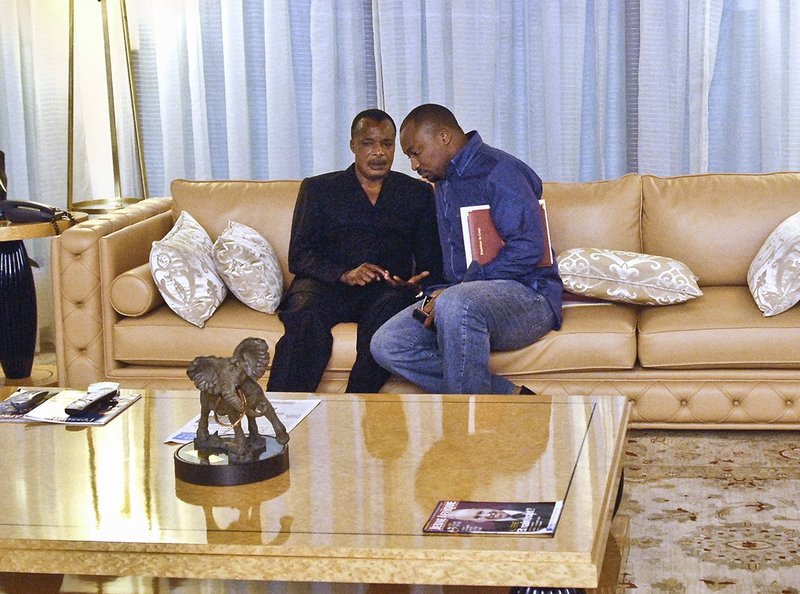
Six different European countries, the British Virgin Islands (BVI) and the American state of Delaware were all involved in an apparent money laundering scheme, once again showing how weaknesses in international anti-money laundering frameworks facilitate corruption.
Denis Christel Sassou-Nguesso, named closely after his father and also known as Kiki, is a powerful figure in Republic of Congo, an oil-rich Central African country.
As well as being the President’s son, he is an elected member of the Congolese parliament and former deputy director of the state-owned oil company Société nationale des pétroles du Congo (SNPC).
His scheme, uncovered by Global Witness, mirrors the pattern and structure of an arrangement used around the same time by his sister, Claudia Sassou-Nguesso.
As well as being the Congolese President’s daughter, she is also a member of parliament and the presidential head of communications.
As Global Witness revealed in April 2019, Claudia Sassou-Nguesso received almost $20 million of apparently stolen state funds and used the dirty money to purchase a luxury apartment in the Trump Hotel & Tower in New York.
Taken together, our investigations provide compelling evidence of how the Congolese Presidential family appears to have been embezzling money from state coffers for personal gain.
The Sassou-Nguessos are known to live lavish lifestyles, which are not compatible with public officials’ relatively modest salaries in Congo.
Congo has recently become sub-Saharan Africa’s third biggest oil producer, earning huge revenues from the oil sector.
However, due to corruption and mismanagement, the country consistently performs badly in development indices such as the Human Development Index and the Corruption Perceptions Index.
While state funds are seemingly looted by the Presidential family, a third of Congo’s population lives below the poverty line and citizens go months without wages, pensions and medicine.
To piece together the investigation, Global Witness trawled through various bank statements, corporate documents and secret contracts, and spoke with sources in many different countries.
What all of this reveals is a trail of dirty money from the Congolese treasury to the heart of Europe, the United States and the BVI.
Key findings:
- Denis Christel Sassou-Nguesso, the son of Congo’s President, seemingly stole over $50 million from the Congolese treasury.
- The money was siphoned off under the pretence of an apparent sham contract for public works with Asperbras, a Brazilian infrastructure company.
- To disguise the provenance of the funds, the money travelled via secrecy jurisdictions, such as the US state of Delaware and the BVI, before reaching Denis Christel Sassou-Nguesso’s shell companies in Europe.
- Denis Christel Sassou-Nguesso was the hidden owner of at least five EU-based shell companies: three in Cyprus, one in Estonia and one in Spain.
- He used the money to make payments to companies in Poland, Portugal, Spain and Switzerland.
- José Veiga, a businessman under investigation in Portugal for his alleged involvement in corruption and money laundering in Congo, acted as the frontman.
- In total, six European countries, one US state and the BVI were used in the scheme and played a key role in facilitating Sassou-Nguesso’s embezzlement, exposing serious weaknesses in anti-money laundering systems worldwide.
The Portuguese fixer
At the heart of the Sassou-Nguesso’s apparent money laundering scheme is José Veiga, a notorious Portuguese businessman known to be a personal business fixer for the Congolese Presidential family.
He is under investigation in Portugal for his alleged involvement in corruption and money laundering in Congo.
Veiga was also a business intermediary for Brazilian company Asperbras in Congo, responsible for securing public works contracts with the Congolese government.
According to the French newspaper Le Canard Enchaîné, Asperbras charged inflated fees for some contracts.
In response to written questions from Global Witness, Asperbras completely refuted any claim of over-priced contracts and irregularities in the Congolese public procurement process.
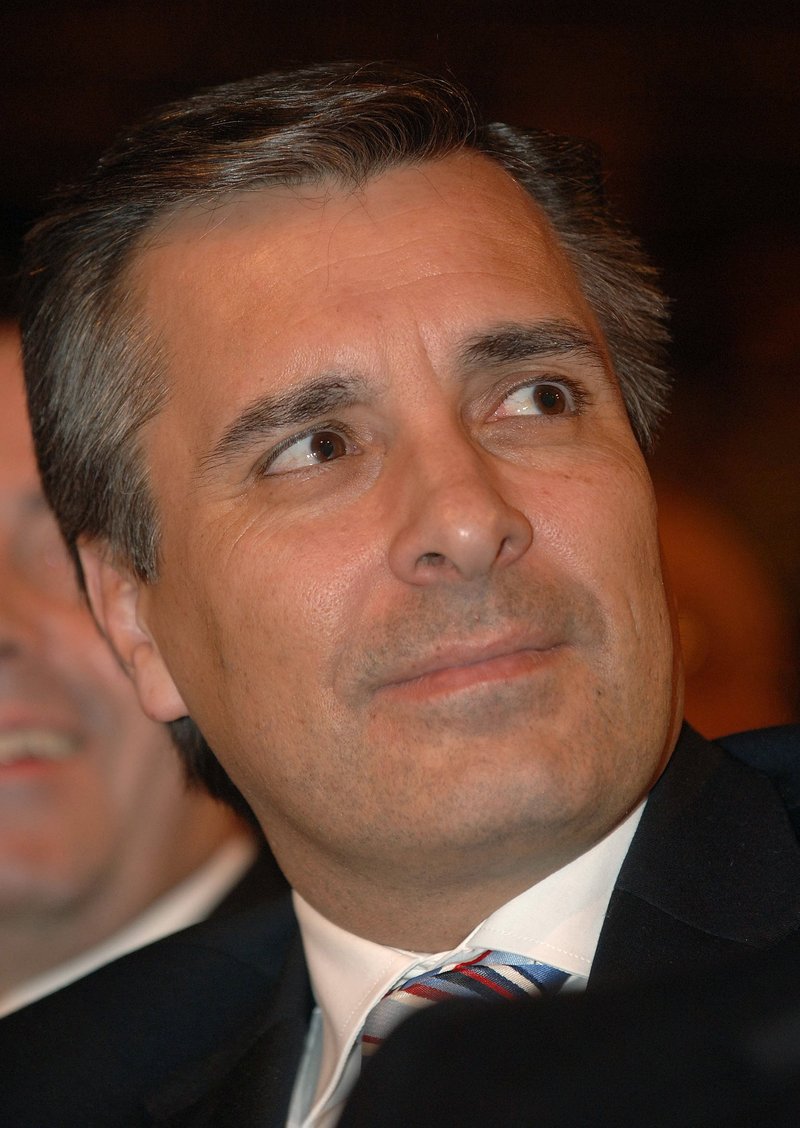
José Veiga, a Portuguese businessman who is the target of a Portuguese investigation into corrupt deals in Congo. He acted as a frontman for Denis Christel Sassou-Nguesso
One of the deals closed by Asperbras with the Congolese government was to perform a geological survey. The Brazilian company subcontracted a Cypriot company called Gabox Limited to carry out part of the work.
Gabox had no obvious experience, financial capital or even employees, and had been set up just two days before signing the deal with Asperbras.
The terms of the contract state that Gabox would receive 25 percent of the amount paid by the Congolese government to Asperbras. According to Swiss NGO Public Eye, the project was valued at $200 million, meaning Gabox would receive $50 million.
In Asperbras’s response to Global Witness, the company claimed that Gabox had been hired exclusively to obtain new deals for Asperbras.
However, the terms of the contract between Gabox and Asperbras, reviewed by Global Witness, indicate that Gabox was also theoretically hired to carry out a geological mapping survey in Congo.
In this period, Gabox was part of a structure consisting of three different Cypriot companies. Veiga seemed to be the owner of this network – at least according to publicly available corporate documents.
But this was not in fact the case.
Veiga was just a frontman, whose presence disguised the true ownership of the Cypriot companies.
Congolese President’s son, the hidden recipient of tens of millions of dollars
The real owner of the Cypriot network of companies which received the $50 million from the Congolese treasury was Denis Christel Sassou-Nguesso, according to documents seen by Global Witness.
When Gabox was incorporated and included in the web of Cypriot companies under Veiga’s name, the Portuguese businessman had already secretly transferred the ownership of the network to the President’s son.
This transfer of ownership was carried out using a set of contracts that were stamped and made official by a notary in Congo’s capital, Brazzaville.
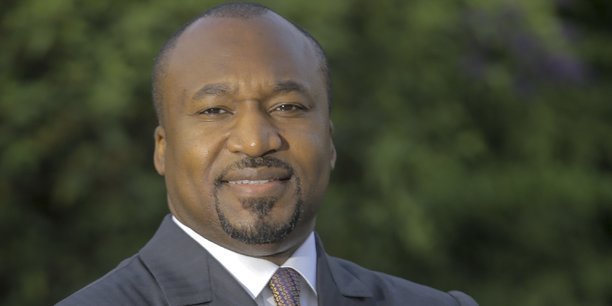
Whatever the company documents in Cyprus might say, these Brazzaville contracts meant that in reality, when Gabox was incorporated, it automatically belonged to Denis Christel Sassou-Nguesso.
The first deposit ever received by Gabox, in January 2014, amounted to $44.5 million (€33.5 million) and came from an Asperbras subsidiary.
A month later, Gabox received a second bank transfer of $1.6 million (€1.2 million) from another Cypriot company called Sebrit Limited.
As Global Witness previously revealed, Sebrit was a front company of Claudia Sassou-Nguesso, the sister of Denis Christel Sassou-Nguesso. Like Gabox, it apparently received stolen funds from the Congolese treasury.
Towards the end of the same year, Gabox’s parent company received $4.4 million, again from the Asperbras subsidiary.
In total, during 2014, companies owned by Denis Christel Sassou-Nguesso received around $50.5 million – funds that seem to have been stolen from the Congolese treasury.
Gabox subsequently made payments to companies based in Poland, Portugal, Spain and Switzerland, according to a Portuguese police report reviewed by Global Witness. The ultimate purpose of these payments is unclear.
What is clear, however, is that the Sassou-Nguesso family has spent vast sums over the past several years on luxury goods and properties.
Given the relatively low salaries for public officials in Congo, it is highly likely that the money for this lavish spending came, at least in part, from looted state funds.
In response to written questions sent by Global Witness, Asperbras said it did not know anything about deals closed by Veiga or his companies, let alone any financial transactions carried out by Veiga on behalf of any “Politically Exposed Person” (PEP) in Congo.
As Denis Christel Sassou-Nguesso is the son of Congo’s President and an elected member of parliament, he would qualify as a PEP.
Anti-money laundering regulations require banks and companies to carry out enhanced due diligence on transactions or deals involving PEPs, because they present a corruption risk: PEPs can potentially use their political power and connections for personal profit.
Asperbras declined to comment in further detail in light of the ongoing Portuguese investigation into Veiga and the deals he has been involved with in Congo.
The company stressed that none of its employees have been charged in relation to that investigation so far.
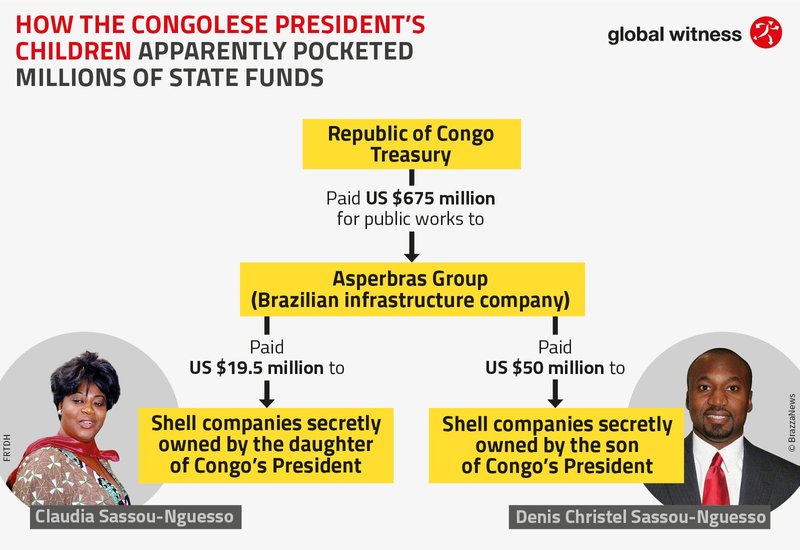
The luxurious lifestyle of the Congolese Presidential family
In power for much of the past four decades, the Sassou-Nguesso family owns properties worth millions of dollars around the world. Members of the family have been accused of using their positions of power to enrich themselves.
Global Witness recently revealed how Claudia Sassou-Nguesso used $7 million from the public funds she seemingly stole to purchase a luxury apartment in Trump International Hotel & Tower in New York.
We have also previously uncovered how Denis Christel Sassou-Nguesso appeared to have spent $35,000 derived from sales of state oil on designer shopping sprees in Paris, Marbella and Dubai.
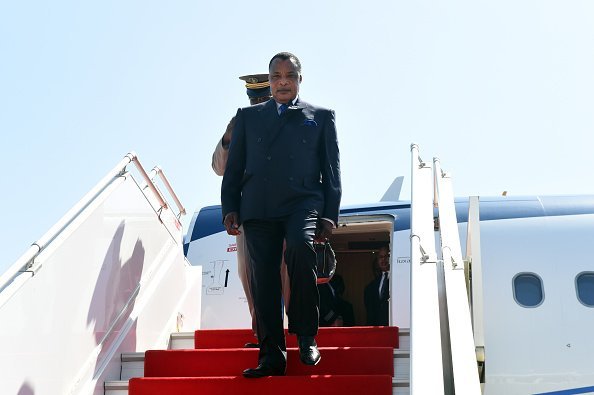
Other stories of extravagance abound: Congo’s President reportedly spent over a million dollars on shirts and suits from luxury Parisian boutiques, while France’s Libération newspaper quoted a former aide to the presidential staff saying that Denis Christel Sassou-Nguesso “changes shirts three or four times a day and boasts that he never washes them and uses them as Kleenexes.”
Since 2010, following a criminal complaint filed by French NGOs, French authorities have been investigating the Congolese Presidential family’s assets on the basis that they had been acquired through misappropriation of public funds and money laundering.
The case is known as the Affaire des Biens Mal Acquis (Ill-Gotten Gains) and is ongoing.
As part of the probe, French investigators found that the Congolese Presidential family had spent $67.6 million (€60 million) on luxury goods and real estate assets in France. This is likely just the tip of the iceberg.
Global Witness sent written questions to Denis Christel Sassou-Nguesso, José Veiga’s lawyer and the Congolese government spokesperson, asking for comment on the details and allegations laid out in this article.
No substantive responses to the allegations put to them for comment were received from any of these parties within the deadline provided.
Corruption enabled by the loopholes in the international financial system
Kleptocrats can embezzle public money and live luxurious lifestyles at the expense of ordinary citizens thanks in part to loopholes in the international financial system’s anti-money laundering regulations.
In the case of Denis Christel Sassou-Nguesso and his Cypriot companies, notarised documents in Brazzaville indicate how ownership was apparently secretly transferred, without any indication of a change in Cyprus – the country of incorporation.
This means that anyone trying to identify the company’s owner in Cyprus would be fooled into thinking that the owner was José Veiga, rather than the son of the Congolese President.
The fact that beneficial ownership disclosures do not account for transfers of ownership in third party countries is a loophole that must be closed by European authorities.
If not, corrupt businesspeople and politicians will be able to continue to hide and disguise their ownership of opaque and dubious companies.
In addition to the network of Cypriot companies, Global Witness reviewed documents showing that Veiga was a frontman for Denis Christel Sassou-Nguesso in two other European shell companies, one incorporated in Spain and the other in Estonia.
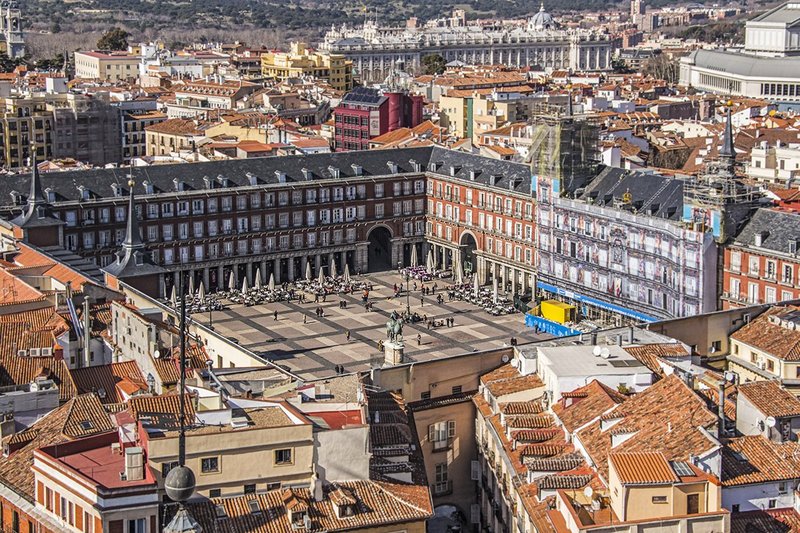
This shows that major gaps in the implementation of anti-corruption measures in various European countries continue to enable the looting of public funds and thereby contribute to keeping the ordinary citizens of kleptocratic states like Congo in poverty.
To tackle this, European countries should fully implement requirements for all companies formed in Europe to disclose publicly who ultimately owns and controls them. Global Witness has for nearly a decade called for public registers of beneficial ownership in so-called secrecy jurisdictions, such as the BVI, where it is difficult to ascertain who really owns companies.
EU member states are required to implement public registers of company ownership by January 2020, while the UK government has required its Overseas Territories to implement public registers by 2023, and the UK’s Crown Dependencies recently announced plans to take similar measures as well. The US is lagging behind, but bipartisan legislation there has a real chance this year of moving through both chambers of congress. It is crucial that legislators and officials in these territories push for the full implementation and enforcement of these and other relevant transparency laws.
Timeline: how $50 million flowed from Congo’s treasury to Denis Christel Sassou-Nguesso’s companies
- On 28 November 2013, a department in Congo responsible for managing the treasury transferred around $675 million (€491.1 million) to a Delaware-based Asperbras subsidiary called Asperbras LLC, seemingly for major public works contracts. Bank documents reviewed by Global Witness show that, prior to this transfer, Asperbras LLC had only a couple of thousand dollars in that account.
- On 9 December 2013, Veiga set up the company Gabox Limited in Cyprus.
- On 11 December 2013, Gabox signed a contract with an Asperbras LLC subsidiary, the BVI-based Energy & Mining. Gabox was ostensibly subcontracted to carry out part of a Congolese geological mapping project, despite having no obvious experience, financial capital or employees and having been set up just two days prior.
- Energy & Mining would pay Gabox the equivalent of 25 percent of the amount received from the Congolese government according to the terms of the contract reviewed by Global Witness. Swiss NGO Public Eye reported that the project was valued at $200 million, meaning Gabox would receive $50 million.
- Various accounts belonging to the Asperbras group (including Asperbras LLC, which received the massive payment from the Congolese government) at the now-defunct Banco Espirito Santo (BES) funneled funds to Energy & Mining’s bank account at BES in Cape Verde. These funds were then distributed to murky companies fronted by Veiga in Cyprus and Congo.
- $62.5 million flowed into Energy & Mining’s dollar account at BES Cape Verde and a further €37 million was received in its euro account at the same bank branch, between January 2013 and November 2014. The funds stem from various BES accounts that seem to have been controlled by Asperbras group companies.
- One of the opaque companies receiving funds from Energy & Mining was Gabox. The first deposit ever received by Gabox amounted to $44.5 million (€33.5 million) in January 2014.
- In February 2014, Gabox received a second bank transfer of $1.6 million (€1.2 million) from another Cypriot company called Sebrit. As Global Witness previously revealed, Sebrit was a front company of Claudia Sassou-Nguesso, the sister of Denis Christel Sassou-Nguesso. Like Gabox, it apparently received stolen funds from the Congolese treasury.
- Gabox’s parent company was the Cypriot company Manzapo. In November 2014, Energy & Mining received further payments from Asperbras LLC and passed $4.4 million to Manzapo. Manzapo’s parent company was another Cypriot company called Alicero. Corporate documents obtained in Cyprus and notarised contracts from Brazzaville show that Denis Christel Sassou-Nguesso owned Alicero and Manzapo, and therefore controlled the whole structure of Cypriot companies involved here.
- In total, during 2014, companies beneficially owned by Denis Christel Sassou-Nguesso received around $50.5 million, money that seems to have been stolen from the Congolese treasury.
Sassou-Nguesso’s Laundromat: A Congolese State Affair (Part II)
Download ResourceRead this page in
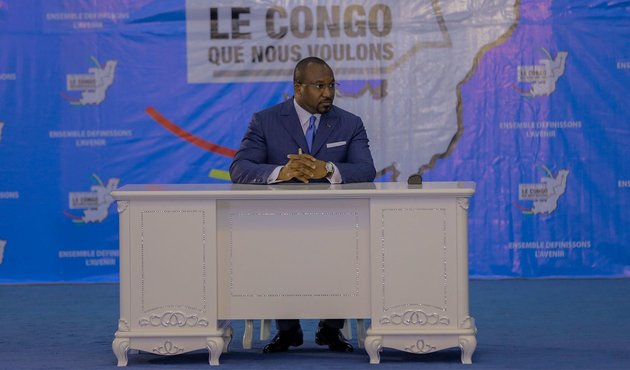

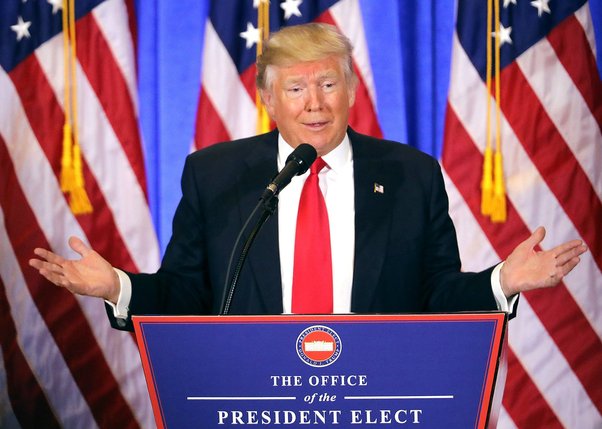
![A man holds a placard reading “Congo is not the Sassou Nguessos' [private] property”](https://gw.hacdn.io/media/images/A_man_holds_a_placard_reading_Congo_is_not_the.width-602.jpg)